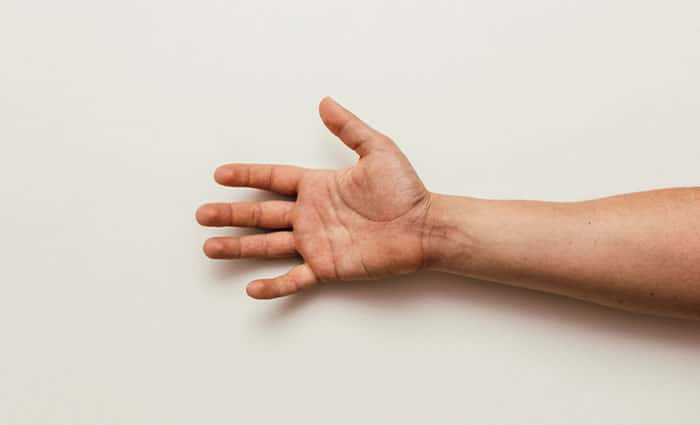The hand is an intricately designed combination of joints, tendons and muscles that must all work together flawlessly for us to perform everyday activities. The 27 bones in the hand and eight bones in the wrist plus all of the muscles, tendons, ligaments, blood vessels and nerves, all of which combine to create one complex design. Unfortunately, injuries and hand conditions make simple tasks difficult or even impossible. Hand injuries are common. In fact, according to the U.S. Department of Labor, hand injuries account for nearly 25 percent of all workplace injuries. If you have an injury of this nature, it is crucial to see an orthopaedic hand specialist. Here is some great information about what hand specialists do.
What is an orthopaedic hand specialist?
An orthopaedic hand specialist deals with problems of the hand, wrist and forearm. They are experts at diagnosing these problems and use both surgical and non-surgical treatments.
Most hand specialists are trained in general, plastic or orthopaedic surgery. Some also have further training specifically in hand surgery.
What conditions do orthopaedic hand specialists treat?
People suffering from hand, wrist or forearm pain could have one of the following conditions:
Carpal tunnel syndrome
Carpal tunnel syndrome is a common condition that orthopaedic hand specialists treat. This condition is caused by repetitive motions like typing or repeated wrist movements. These movements cause pressure on the median nerve, which spans the entire length of the arm. When the nerve reaches the wrist, it goes through a narrow passage (the carpal tunnel). This nerve controls the movement of the thumb and first three fingers. Another nerve controls the pinky finger.
People with carpal tunnel syndrome experience numbness, tingling, burning or even an itching sensation in the thumb and finger and often experience hand weakness and have trouble holding objects. As the condition worsens, people lose grip strength and experience muscle cramping and pain because the median nerve cannot function properly.
Trigger finger
Orthopaedic hand specialists also treat trigger finger, a condition in which one finger becomes stuck in a bent position, like a finger that would be pulling and releasing a trigger. The condition is medically known as “stenosing tenosynovitis” and is caused by inflammation that narrows the tendon sheath surrounding the finger. Over time, the prolonged irritation of the tendon sheath causes the tendon to become thickened and scarred.
When the condition is severe, the finger becomes locked in a bent position and cannot be straightened. People who have a history of repetitive gripping actions due to a job function or specific hobbies often have the condition. It is more common in people who have diabetes and women. The condition can affect any finger or the thumb and can affect both hands and even more than one finger.
Thumb joint arthritis
Thumb joint arthritis is another condition orthopaedic hand specialists can treat. This type of arthritis is caused by wear on the cartilage in the thumb joint and is common with aging. Many patients experience swelling, severe pain and decreased range of motion and strength, all of which make performing even the most basic tasks challenging.
Many people with thumb arthritis have difficulty performing simple tasks like opening a jar or turning a doorknob. Treatment typically involves splints or medication in the early stages but might require surgery if the arthritis has reached a severe stage with substantial functional loss.
Dupuytren’s contracture
Dupuytren’s contracture is a hand deformity that develops slowly. It often occurs in older men and is caused by a condition in the tissue layer under the skin of the palm. Knots form in the tissue and pull the fingers into a bent position so that the fingers cannot be completely straightened. This condition typically affects the two fingers farthest away from the thumb. The cause of the condition is not known and there is no scientific evidence that repetitive motions or hand injuries create Dupuytren’s contracture. People with diabetes have a tendency to have this condition more often than do others, as do people who smoke or drink excessively. The condition is also genetic, and people of Northern European descent tend to be at higher risk of developing it.
Traumatic injuries
Orthopaedic hand specialists also treat traumatic injuries like ligament tears in the thumb or fingers, tendon lacerations and finger amputations. Orthopaedic surgeons are skilled in reattaching tendons or digits and cleaning up other damage caused by these injuries. These specialists also treat fractures of the finger, hand, wrist or forearm.
Nerve-related issues
Orthopaedic hand specialists also treat nerve-related issues such as ganglion cysts, brachial plexus issues or issues with the peripheral nerves. Finally, these specialists can treat congenital hand deformities such as congenital amputations, congenital radial club hand, polydactyly (extra fingers) or syndactyly (webbing of the fingers).
When should you see an orthopaedic hand specialist?
Anyone who is experiencing hand, finger, wrist or arm pain should consult an orthopaedic hand specialist. They are experts in examining, diagnosing and treating issues that involve the hand, like the ones described above.
If you are having difficulty using your hand or wrist to perform basic daily functions, it may be time to see a specialist. For example, if you are having trouble gripping a glass of water, carrying in your groceries or typing on a keyboard, make an appointment with an orthopaedic specialist All of these difficulties may be signs of a hand, wrist or other problem. If you are experiencing joint pain or pain in the fingers, hand, wrist or forearm that has lingered for more than a few days, it is time to see a specialist. Certainly, if you have any joint deformities, bent fingers or limited range of motion, it is time! If you have been experiencing the effects of arthritis, it is advisable to see an orthopaedic hand specialist before the condition worsens. Cuts or fractures should also be immediately examined by an orthopaedic hand specialist.
What should you expect during your visit with a hand specialist?
Do not delay seeing a specialist because you think the visit will result in surgery. Hand surgeons can often treat injuries and conditions using non-surgical treatment options. Physical therapy can also restore movement and range of motion and can reduce or eliminate pain. These specialists often use medications and devices like splints to remedy certain conditions.
At your visit, the specialist will listen to your concerns, take a detailed medical history and perform a finger, hand and arm examination. Hand specialists can expertly evaluate all of these conditions and offer effective strategies for pain relief and remedy of the situation to help restore your quality of your life.
These specialists provide a wide range of treatment options including targeted hand exercise, stretching, surgeries and pain relief therapies including medication and physical therapy.
Orthopaedic hand specialist in Raleigh
Orthopaedic hand specialists treat not only hand issues as well as provide surgical and non-surgical treatments of the upper extremities of the body. These specialists are committed to helping patients return to their normal lifestyles as soon as possible and with as little downtime as possible.
Cary Orthopaedics got its start back in the 1980s as an orthopaedic hand specialist, and we offer this expertise today. Dr. Jeremy J. Miles specializes in hand, wrist and upper extremity surgery at Cary Orthopaedics and treats a wide range of conditions. To make an appointment with Dr. Miles, contact us today.







